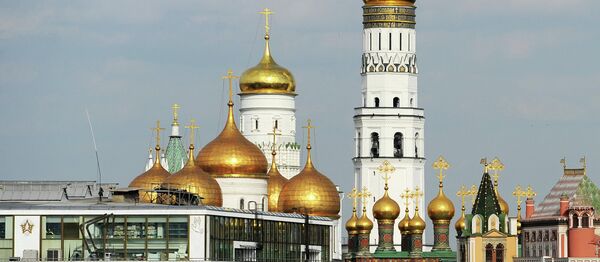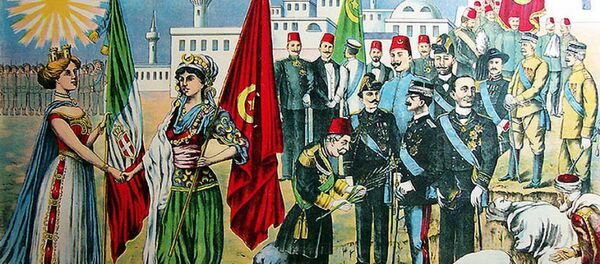In his interview for Atlantico, del Valle is first asked why, over the past half-decade in particular, the popularity of the Western modern of liberal democracy has been in decline. His interviewer recalls a recent study by the US think tank Freedom House, which points to the years 1990 to 2005 as the period of Western-style liberal democracy's most active dissemination.
"1990 is a very interesting year," the political commentator recalls. "It was the year that Francis Fukuyama proclaimed the victory of the liberal democratic model. Moreover, the 1990s saw the velvet revolutions, right after the [1990-1991] Gulf War, in which the West as a whole and the United States in particular, under the cover of democratization, played dirty tricks on Russia and the Central Asian countries, aimed at reducing Moscow's strategic weight in the world."
"On the other hand, Russia and its allies came to see Western democracy as a kind of conspiracy to justify a new imperialism. Velvet and color revolutions, as well as the intervention in the former Yugoslavia, came to be seen as components of this secret plan. As a result, the idea of democracy is perceived much worse than it was in the 1990s."
In the brief golden period of the 1990s, the journalist recallded, "the West enjoyed popularity, resonating the hopes of many oppressed peoples. Today, a quarter-century later, we must admit that the West no longer represents the promised ideal of democracy, but rather a civilization which is neo-imperialist, arrogant and dangerous."
This, del Valle suggests, has given rise to the popularity of 'new authoritarianism' and 'new realpolitik' in non-Western countries around the world.
These actions, he recalls, include everything from the bombing of Libya to interventions in African, Arab and Muslim countries, to the drone bombing of civilian populations, "considered an act of cowardice by the victims," to economic embargoes, as in Iraq, "which banned even the import of cancer medications."
"And while it would be wrong to hold the West responsible for everything, interventions through the right of intervention as theorized by Kouchner and applied by the United Nations today have led to a situation where international law is legitimately perceived as an instrument for neocolonialism and neo-imperialism, and the West is perceived as the cause of all the evils of the world."
The US-led interventions in Iraq, del Valle suggests, "played the decisive role" in the tendency to view the West with suspicion. "All experts today agree that they resulted in a catastrophe. One analyst has said that Daesh has a father and a mother, and that the father was the first war in Iraq in 1990. It is a mistake for which we must now pay every day."
"These interventions have convinced dictators that they should not be moderate, and given half-dictators the thought that they should not democratize, and not enter the Western, rights-based, UN-based system (which would make them vulnerable)."
This, del Valle argues, is the thought that must cross the minds of North Korea's leadership, for example – that "Gaddafi decided to give up nuclear weapons, just as Saddam Hussein, and both of them were toppled. The moral of the story is that 'we will defend our sovereignty and adhere to a policy of realpoliltik, and will not accept the division of sovereignty, and demilitarization agreements, which the West wants, because they will only reward us with bombs'."
"If even Huntington (i.e. a hawk, and a US nationalist), and Donald Trump (accused of being a danger to the world) have denounced interventionism and vehemently condemned George W. Bush's [Iraq] intervention, it means that it truly is time to call such policy into question."
In the final analysis, del Valle argues, globalization may continue, but is likely to transform to carry less and less of a Western character as time goes on. "It is manefested in the rise of Confucianism in Singapore, Hunduism and the caste sytem in India, Orthodoxy in Russia and the Indian nativism movements in Latin America. We can see everywhere that the West as a reference point is losing ground. The rejection of the West may take a long time, up to the formation of distinct poles. At that point, the position of the West may change, because it will lose its imperial positions." In any case, "so long as hegemony continues to be perceived as such, the situation can only be aggravated."




